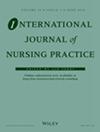The Efficacy of Postoperative Nursing Management for Patients Undergoing Prostate Surgery: A Meta-Analysis
Abstract
Objective
The efficacy of postoperative nursing management in patients undergoing prostate surgery remains poorly recognized. To address this, we conducted a meta-analysis to evaluate the effectiveness of this approach.
Methods
From January 2000 to February 2024, seven randomized controlled trials were selected, involving a total of 593 patients from PubMed, EMBASE and the Cochrane Library to evaluate the efficacy of postoperative nursing management in patients undergoing prostate surgery. All data were analysed using the Review Manager 5.4 software. Outcomes assessed included nursing satisfaction, psychological scores, hospital stay, urinary frequency, residual urine volume (RUV), incidence of complications, frequency of urinary incontinence (UI), urinary tract infection (UTI), pain scores and incidence of UI.
Results
Postoperative nursing management for prostate surgery significantly increased patients' nursing satisfaction (OR 6.46, 95% CI 3.53–11.83, p < 0.00001), improved psychological scores (MD −4.88, 95% CI −8.67 to −1.09, p = 0.01) and shortened hospital stay (MD −4.19, 95% CI −6.14 to −2.25, p < 0.0001). Regarding urinary symptoms, urinary frequency (MD −4.28, 95% CI −8.00 to −0.55, p = 0.02) was significantly reduced, although no significant difference was observed in RUV. In addition, postoperative nursing management significantly reduced the incidence of complications (OR 0.36, 95% CI 0.21–0.62, p = 0.0003), primarily reflected in a decrease in the frequency of UI (MD −2.72, 95% CI −4.70 to −0.74, p = 0.007). However, no significant differences were found in terms of UTI, pain scores or the incidence of UI.
Conclusion
Collectively, our findings suggest that targeted and systematic postoperative nursing management is essential for optimizing recovery and should be integrated as a standard component of perioperative care for patients undergoing prostate surgery.
Registration Number
CRD42024617179.

 求助内容:
求助内容: 应助结果提醒方式:
应助结果提醒方式:


